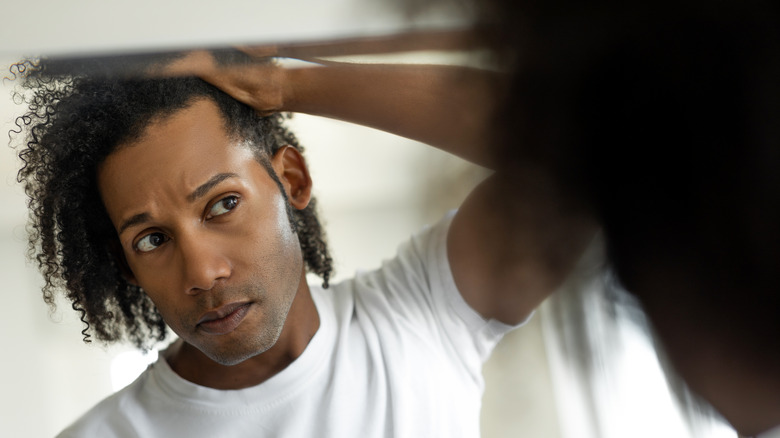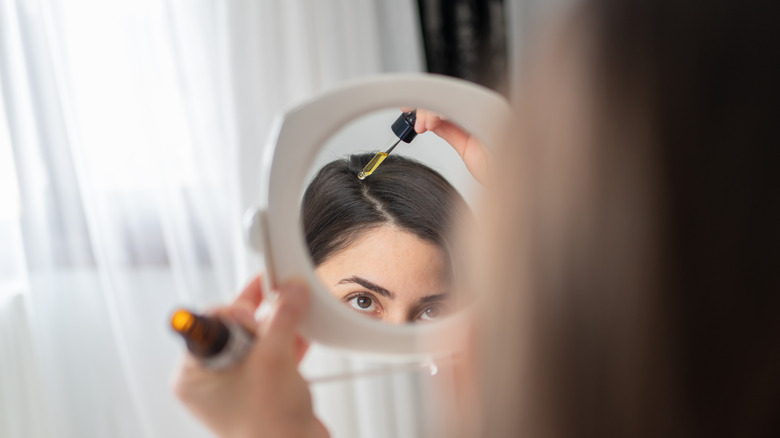Subtle Signs You're Losing Your Hair (And What To Do About It)
Although it's possible, hair loss doesn't usually happen overnight. For most people, it progresses slowly over time. In fact, approximately 50% of women and upwards of 80% of men are affected by substantial hair loss (or alopecia) over the course of their lives, reports NYU Langone Health.
When we refer to hair loss, we're not talking about your typical, everyday shedding. Out of the average 100,000 to 150,000 hairs housed on our heads, we can expect to lose anywhere from 50 to 100 of them each day. This is considered normal. More significant hair loss, however, can begin to develop sooner than you might expect, such as in early adulthood.
Early, more subtle signs of hair loss might look different for men and women. According to the American Academy of Dermatology Association (AAD), women may start to notice their parts gradually beginning to widen or their ponytail losing its thickness. In cases of male pattern baldness, initial symptoms often involve a receding hairline that resembles the letter "M" or thinning at the very tip of the back of the head (per Penn Medicine).
Although the experience of hair loss will vary from person to person, some general signs include hair thinning that starts on the sides of the head at the temples or larger masses of hair that come out in your hand (per Healthline). In some cases, however, this may alternatively be related to a health issue.
Another subtle sign of early hair loss that you might not initially think is related is a sunburned scalp, according to Leonard Hair Transplant Associates. When our hair starts to thin, our scalp gets more direct exposure to the sun's UV rays.
Hair loss treatment options
Reach out to a healthcare professional if you have concerns about hair loss, especially if it seems sudden or excessive. "See a doctor if you notice abundant hair where you wouldn't normally see much, such as on your pillow," dermatologist and hair loss researcher Dr. Jerry Shapiro told NYU Langone Health. Depending on the cause, treatment recommendations may include hair transplants, topical hair products, medication, laser therapy, and more.
If you're looking for a more DIY solution, experts at WebMD state that certain nutrients may work against hair loss. These include iron, biotin, or zinc. Topical application of onion juice or certain essential oils may also be helpful. However, the research is limited and a doctor should always be consulted first before using or taking any supplements.

